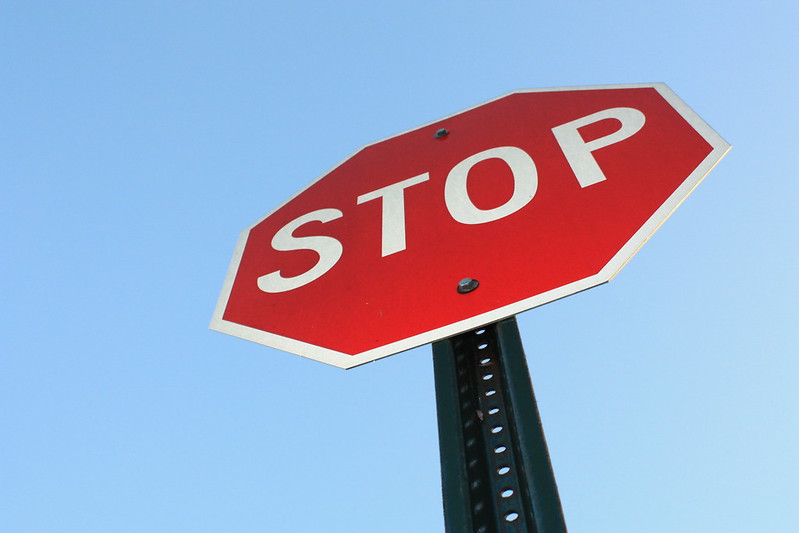Image: ‘Stop Sign’ by thecrazyfilmgirl, licensed under CC BY 2.0
by Adam Susel
Harm reduction, as a social movement, necessarily invites diversity of thought from its practitioners. While all harm reductionists are surely in favor of reforming contemporary drug laws, it remains an open question as to what constitutes the ideal new American drug policy.
Some propositions have widespread agreement in the broader US reform movement, such as marijuana legalization (which also has support from the general public). Other ideas, such as commercial sale of opioids, lead to disagreement. A noticeable trend is that two particular drug classes, cannabinoids and psychedelics, are treated as being much more benign and harmless than others. This has been termed psychedelic exceptionalism by Dr. Carl Hart.
The extraordinary medicinal or spiritual value of these drugs are touted by advocates as justification for special treatment as prohibition laws are reformed. However, regardless of the veracity of this claim, it should not imply that users of these drugs deserve preferential treatment under the law and in the view of society.
The US war on drugs is not targeted at ayahuasca circles full of wealthy clients – it is targeted at poor and marginalized people. Overdose deaths continue to rise among this demographic as many more face life altering prison sentences. Yet some advocates only center marijuana and psychedelics in their rhetoric.
One may argue that a gradual shift in the Overton window is necessary for drug policy reform to take root. However, this shift can happen organically within broader culture. Movies, music, and other media do not shy away from displaying substance use. The Overton window will continue to shift regardless of what advocates say. It is therefore unnecessary for reform advocates to restrain themselves from promoting just policies in the name of popularity among the lay public.
Another argument is that the medical value of marijuana and psychedelics provide a sufficient reason for them to be more readily available, either prescribed by a doctor or available for open sale. This line of reasoning, however, is easily extended to most illicit drugs. Fentanyl, a main driver of the overdose crisis, is a valuable medicine for analgesia and used safely in hospitals every day. Amphetamine, whose subjective effects are not easily distinguished from that of methamphetamine, is a widely used psychiatric drug. Ketamine, a dissociative drug, has also been advanced as a psychiatric medication. Yet opioids, amphetamine type stimulants (other than MDMA), and dissociative drugs aside from ketamine are not given similar treatment by marijuana and psychedelic advocates. Thus, one can reasonably conclude that medical value is not the true reason for these drugs being given an elevated status by some advocates.
Indeed, the reason for this elevated status remains unclear. A possible explanation is that, perhaps ironically, marijuana and psychedelic centered drug policy advocates seek personal, not communal, liberation from punitive drug laws. This requires a level of cognitive dissonance. On one hand, these advocates recognize that drug prohibition has failed to improve public health outcomes. Yet they fail to extend this reasoning to the suffering of others at the hands of prohibition. This contradiction is particularly salient as people who use other drugs, such as opioids, undeniably face a larger public health burden due to prohibition than users of marijuana and psychedelics in the US. This individualistic and in-group thinking will continue the suffering of people who use drugs longer than it has to. Instead, those passionate about drug policy reform must keep firmly in mind that no one is liberated, until everyone is.

Adam Susel is a recent graduate of West Virginia University, where he studied mathematics. His academic interests include neuroscience, applied math, statistics, and public health. After first joining Bluelight staff in 2021, he has worked his way through the ranks to become an administrator. His Bluelight interests mainly lie in drug policy reform. He particularly seeks to engage people who use drugs in thorough conversations about the legislative changes that affect them.
